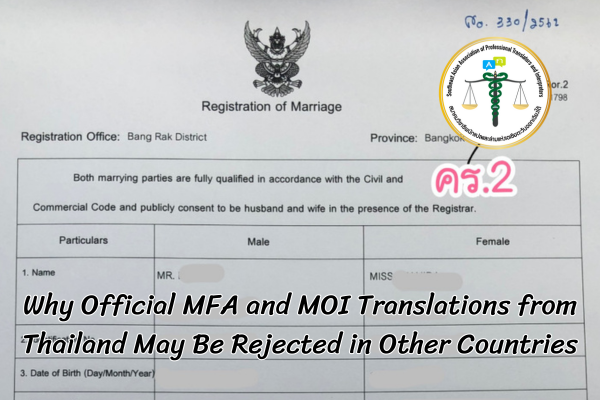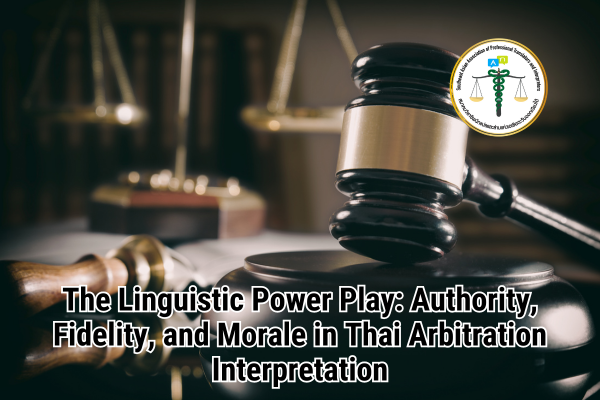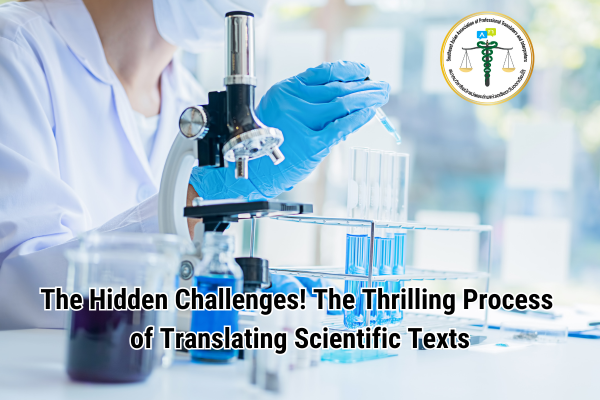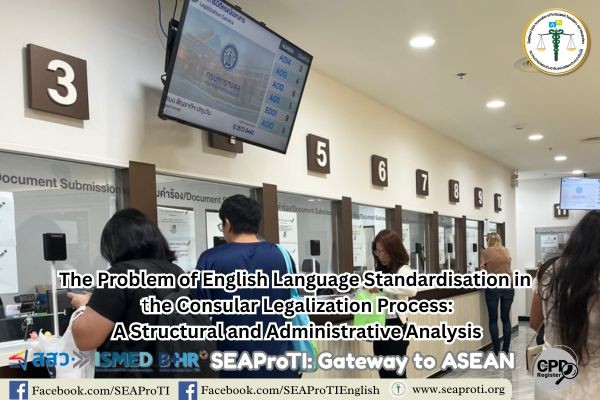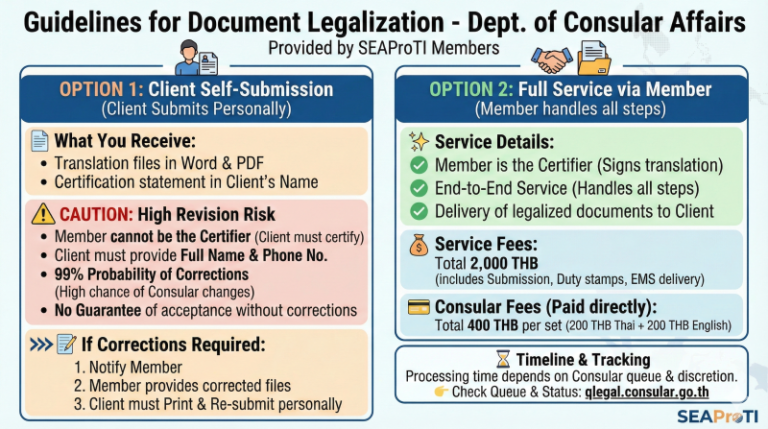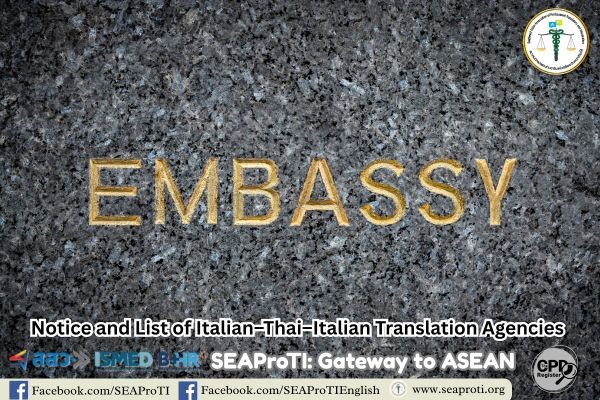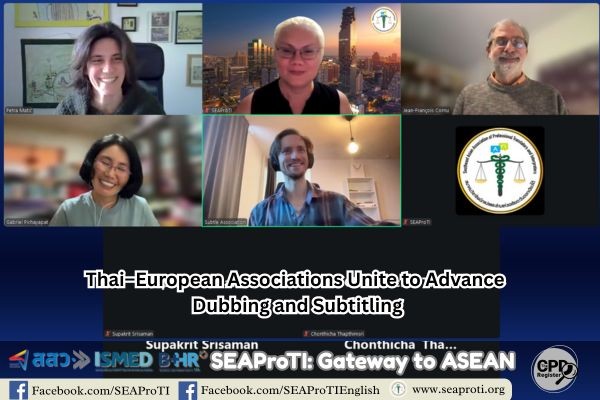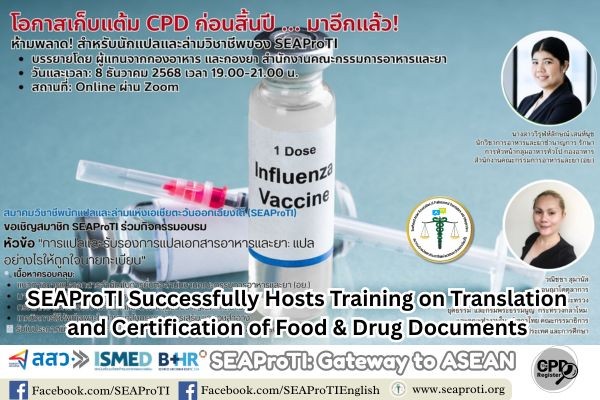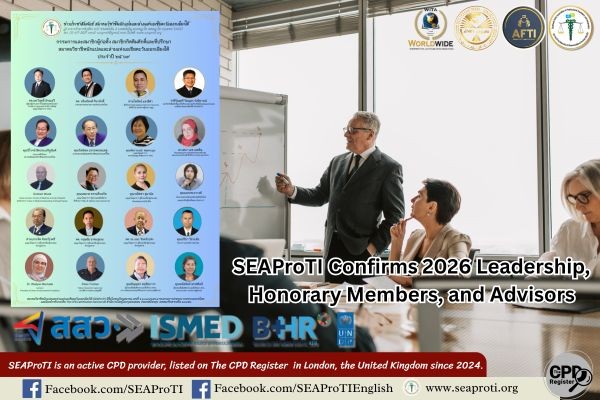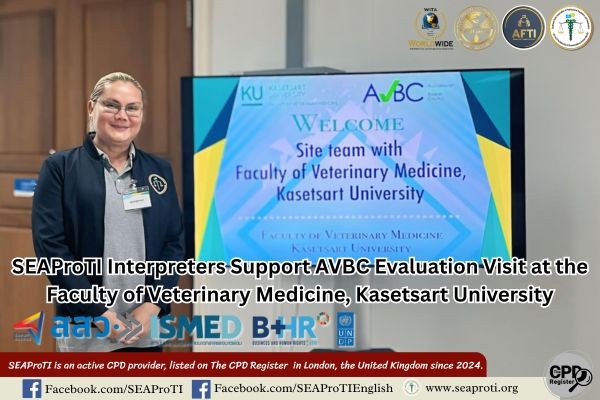Why Official MFA and MOI Translations from Thailand May Be Rejected in Other Countries
Translations provided by Thailand’s Ministry of Foreign Affairs (MFA) and Ministry of Interior (MOI) are often regarded as official and credible. However, when used in other countries, these translations can encounter challenges that prevent their acceptance. Understanding the reasons behind this and how to address the issues is crucial for individuals relying on these documents for legal or administrative purposes abroad.
Reasons for Rejection
1. Local Legal Requirements
Jurisdictional Rules
Many countries have stringent legal requirements dictating who can translate documents for official use. These jurisdictions often mandate that translations be done or certified by translators registered with their courts or government agencies. While MFA and MOI translations are considered official within Thailand, they may not meet these localized legal standards.
Court-Specific Translators
In some cases, courts or administrative bodies demand translations from professionals specifically registered in their jurisdiction. This ensures easier verification and accountability, which MFA/MOI translators may not provide, leading to rejection.
2. Missing Additional Texts Added by Officials
Extra Texts Not Translated
Thai official documents often include handwritten notes, remarks, or annotations added by issuing officers. These notes may reflect critical updates, corrections, or additional information relevant to the document’s context. However, MFA and MOI officials are not authorized to translate these handwritten texts, resulting in incomplete documents.
Incomplete Translations
When translations omit such handwritten elements, they may fail to meet the comprehensive translation standards required in certain countries. This can result in rejection by authorities or institutions that expect every part of the original document to be faithfully translated.
3. No MOI Database for Births Before BE 2540 (1997)
Limited Digital Records
Individuals born before BE 2540 (1997) may not appear in the Ministry of Interior’s modern database system. As a result, obtaining complete or updated documents for these individuals can be challenging.
Requirement for Certified Translators
For these older records, local authorities often demand translations from certified professionals who can independently verify and translate the details with accuracy. MFA/MOI translations may not suffice because they rely on incomplete or outdated records.
4. Authentication and Apostille Requirements
Hague Convention
Countries that are members of the Hague Convention require an apostille stamp to authenticate documents, including translations. While the MFA/MOI may provide official translations, these translations often lack the required Notary Public certification or additional Apostille demanded by certain jurisdictions.
Non-Hague Countries
For countries outside the Hague Convention, additional legalization steps are often necessary. MFA/MOI translations may fail to meet these additional requirements, leading to rejection.
5. Perception of Language and Context Accuracy
Cultural and Legal Terminology
Translations from the MFA/MOI may not always capture the legal and cultural nuances required in the receiving country. Legal terminologies and cultural contexts vary significantly between nations, and local authorities often prefer translators familiar with their specific legal systems and practices.
Format Standards
Some countries have strict formatting or presentation requirements for official translations. For example, specific font styles, margins, or document layouts may be mandated. MFA/MOI translations, designed to meet Thai standards, might not adhere to these foreign requirements.
6. Fraud Prevention and Verification
Local authorities are increasingly cautious about the authenticity of foreign documents. They often require certified translations from translators whose credentials they can verify. Since MFA/MOI translators are not registered within their databases, this lack of verifiable credentials can raise concerns about fraud or authenticity.
7. Specialized Translators for Legal Systems
Legal and Immigration Processes
When dealing with immigration, court cases, or other legal matters, many countries require translators who are both accredited and familiar with their specific legal systems. While MFA/MOI translations are general, they may not meet the specialized requirements for such contexts.
Recommendations to Address Common Issues
1. Check Local Requirements Early
Before submitting any documents, verify the specific translation and legalization requirements of the destination country. Consult the local embassy, consulate, or relevant legal authority to understand their expectations.
2. Ensure Comprehensive Translations
If your document contains annotations or handwritten texts, confirm with the translator that these are included in the translation. This ensures the translated document aligns with the original’s complete content.
3. Use Certified Translators for Older Records
For individuals born before BE 2540 (1997), hire a translator certified in the receiving country who can handle older, less accessible records. This ensures accuracy and compliance with local standards.
4. Consider Dual Certification
In cases where MFA/MOI translations are required, you may also need a local translator to certify or endorse the documents. This dual approach can bridge gaps between Thai and foreign legal standards.
5. Legalization and Apostille Services
Ensure your documents, including translations, are apostilled or legalized as required. This may involve additional steps such as obtaining notarization or embassy verification to enhance the document’s acceptability.
6. Engage Sworn or Court-Certified Translators
For sensitive legal or administrative cases, hire translators who are sworn or court-certified in the receiving country. These professionals are often listed in government or court registries and are easily verifiable by local authorities.
7. Adapt to Local Formatting Standards
Review the formatting requirements of the destination country and ensure your translations comply. This small step can prevent rejection based on technicalities like presentation or layout.
Real-World Example
Consider an individual applying for permanent residency in Germany. They submit an MFA-certified Thai birth certificate translation, only to find it rejected. The German immigration office cites missing handwritten annotations and the lack of a sworn translator’s certification. To resolve this, the individual hires a locally registered sworn translator who includes the handwritten texts and certifies the document according to German legal standards. This additional step ensures the document’s acceptance.
Conclusion
Translations from the MFA and MOI in Thailand are invaluable for many official purposes within the country. However, their acceptance abroad depends on meeting the specific legal, procedural, and cultural requirements of the destination country. By understanding these challenges and taking proactive measures—such as verifying requirements, using certified translators, and ensuring proper legalization—you can enhance the chances of your documents being accepted internationally. Always plan ahead and consult local authorities to avoid unnecessary delays or complications.
About SEAProTI’s certified translators, translation certification providers, and certified interpreters:
The Southeast Asian Association of Professional Translators and Interpreters (SEAProTI) has officially announced the criteria and qualifications for individuals to register as “Certified Translators,” “Translation Certification Providers,” and “Certified Interpreters” under the association’s regulations. These guidelines are detailed in Sections 9 and 10 of the Royal Thai Government Gazette, issued by the Secretariat of the Cabinet under the Office of the Prime Minister of the Kingdom of Thailand, dated July 25, 2024, Volume 141, Part 66 Ng, Page 100.
To read the full publication, visit: the Royal Thai Government Gazette
เหตุผลที่การแปลเอกสารจากกระทรวงการต่างประเทศและกระทรวงมหาดไทยของไทยอาจไม่ได้รับการยอมรับในต่างประเทศ
การแปลเอกสารที่จัดทำโดยกระทรวงการต่างประเทศ (กต.) และกระทรวงมหาดไทย (มท.) ของไทยมักถูกมองว่าเป็นทางการและน่าเชื่อถือ แต่เมื่อใช้เอกสารเหล่านี้ในต่างประเทศ อาจเกิดปัญหาที่ทำให้การแปลไม่เป็นที่ยอมรับ การเข้าใจถึงสาเหตุของปัญหาและวิธีแก้ไขจึงเป็นสิ่งสำคัญสำหรับผู้ที่ต้องใช้เอกสารดังกล่าวในวัตถุประสงค์ทางกฎหมายหรือการบริหารในต่างประเทศ
เหตุผลที่เอกสารอาจไม่ได้รับการยอมรับ
1. ข้อกำหนดทางกฎหมายของท้องถิ่น
ข้อบังคับตามเขตอำนาจศาล
หลายประเทศมีข้อกำหนดทางกฎหมายที่เคร่งครัดเกี่ยวกับผู้แปลเอกสารสำหรับการใช้งานอย่างเป็นทางการ โดยข้อกำหนดเหล่านี้มักกำหนดให้การแปลต้องดำเนินการหรือรับรองโดยผู้แปลที่ขึ้นทะเบียนกับศาลหรือหน่วยงานของรัฐบาล แม้การแปลของ กต. และ มท. จะถือว่าเป็นทางการในประเทศไทย แต่ก็อาจไม่สอดคล้องกับมาตรฐานทางกฎหมายในท้องถิ่นของประเทศอื่น
ผู้แปลที่ขึ้นทะเบียนกับศาล
ในบางกรณี ศาลหรือหน่วยงานปกครองในต่างประเทศอาจกำหนดให้การแปลมาจากผู้แปลที่ขึ้นทะเบียนในเขตอำนาจศาลนั้น เพื่อให้ตรวจสอบได้ง่ายและมีความรับผิดชอบในเอกสาร การขาดคุณสมบัติดังกล่าวอาจทำให้การแปลจาก กต. หรือ มท. ถูกปฏิเสธ
2. การขาดการแปลข้อความเพิ่มเติมที่เจ้าหน้าที่เพิ่มในเอกสาร
ข้อความที่ไม่ได้รับการแปล
เอกสารทางราชการของไทยมักมีหมายเหตุ ข้อความเขียนด้วยลายมือ หรือคำอธิบายเพิ่มเติมที่เจ้าหน้าที่ออกเอกสารระบุไว้ ซึ่งข้อความเหล่านี้อาจเป็นข้อมูลสำคัญที่เกี่ยวข้องกับการแก้ไขหรือเพิ่มเติมข้อมูลในเอกสาร อย่างไรก็ตาม เจ้าหน้าที่ของ กต. และ มท. ไม่ได้รับอนุญาตให้แปลข้อความเหล่านี้ ทำให้เอกสารที่แปลอาจไม่สมบูรณ์
การแปลที่ไม่ครบถ้วน
เมื่อการแปลขาดข้อความบางส่วน เช่น ข้อความเขียนด้วยลายมือ อาจทำให้เอกสารไม่ผ่านมาตรฐานการแปลที่ครอบคลุมตามข้อกำหนดในบางประเทศ
3. ไม่มีฐานข้อมูลสำหรับผู้เกิดก่อนปี พ.ศ. 2540
ข้อจำกัดของระบบฐานข้อมูล
บุคคลที่เกิดก่อนปี พ.ศ. 2540 (ค.ศ. 1997) อาจไม่มีข้อมูลในระบบฐานข้อมูลดิจิทัลของกระทรวงมหาดไทย การจัดทำเอกสารที่สมบูรณ์หรือเป็นปัจจุบันจึงอาจทำได้ยาก
ความต้องการผู้แปลที่ได้รับการรับรอง
สำหรับเอกสารที่เกี่ยวกับบุคคลในช่วงเวลาดังกล่าว หน่วยงานในต่างประเทศมักต้องการการแปลจากผู้แปลที่ได้รับการรับรองและสามารถยืนยันและแปลรายละเอียดได้อย่างถูกต้อง การแปลของ กต. และ มท. อาจไม่เพียงพอเนื่องจากข้อมูลที่อาจไม่ครบถ้วนหรือทันสมัย
4. ข้อกำหนดเกี่ยวกับการรับรองและการประทับตราอาโพสตีล
อนุสัญญาเฮก (Hague Convention)
ประเทศที่เป็นสมาชิกของอนุสัญญาเฮกมักกำหนดให้เอกสาร รวมถึงเอกสารแปล ต้องมีตราประทับอาโพสตีลเพื่อรับรองความถูกต้อง การแปลจาก กต. และ มท. อาจขาดการรับรองจาก Notary Public หรือการประทับตราอาโพสตีลตามที่บางประเทศกำหนด
ประเทศที่ไม่ใช่สมาชิกอนุสัญญาเฮก
ในกรณีที่ประเทศปลายทางไม่ได้เป็นสมาชิกอนุสัญญาเฮก อาจต้องมีขั้นตอนการรับรองเพิ่มเติม เช่น การยืนยันเอกสารโดยสถานทูต ซึ่งการแปลจาก กต. และ มท. อาจไม่ผ่านขั้นตอนดังกล่าว
5. ความถูกต้องของภาษาและบริบททางกฎหมาย
ศัพท์ทางกฎหมายและวัฒนธรรม
การแปลจาก กต. และ มท. อาจไม่ครอบคลุมถึงความหมายและบริบทของคำศัพท์ทางกฎหมายในประเทศปลายทาง หน่วยงานในต่างประเทศมักต้องการการแปลจากผู้ที่เข้าใจกฎหมายและวัฒนธรรมของตน
มาตรฐานการจัดรูปแบบเอกสาร
บางประเทศมีข้อกำหนดที่เข้มงวดเกี่ยวกับรูปแบบเอกสาร เช่น รูปแบบตัวอักษร ระยะขอบ หรือการจัดหน้า การแปลจาก กต. และ มท. ซึ่งออกแบบตามมาตรฐานของไทย อาจไม่ตรงตามข้อกำหนดเหล่านี้
6. การป้องกันการฉ้อโกงและการตรวจสอบ
หน่วยงานในต่างประเทศระมัดระวังเกี่ยวกับเอกสารจากต่างประเทศมากขึ้น โดยมักต้องการการแปลจากผู้แปลที่สามารถตรวจสอบข้อมูลได้ ผู้แปลจาก กต. และ มท. อาจไม่มีชื่อในฐานข้อมูลของหน่วยงานในประเทศปลายทาง ซึ่งอาจทำให้เกิดความกังวลเกี่ยวกับการฉ้อโกงหรือความถูกต้องของเอกสาร
7. ความเชี่ยวชาญเฉพาะด้านในระบบกฎหมาย
กระบวนการกฎหมายและการตรวจคนเข้าเมือง
ในกรณีที่เกี่ยวข้องกับการตรวจคนเข้าเมือง การดำเนินคดี หรือกระบวนการทางกฎหมายในต่างประเทศ หลายประเทศต้องการผู้แปลที่ได้รับการรับรองและมีความเชี่ยวชาญในระบบกฎหมายเฉพาะของตน การแปลจาก กต. และ มท. อาจไม่ครอบคลุมความต้องการเฉพาะเหล่านี้
ข้อแนะนำเพื่อแก้ไขปัญหา
-
ตรวจสอบข้อกำหนดในประเทศปลายทางล่วงหน้า
ตรวจสอบข้อกำหนดเกี่ยวกับการแปลและการรับรองเอกสารกับสถานทูต สถานกงสุล หรือหน่วยงานกฎหมายในประเทศปลายทางก่อนส่งเอกสาร -
การแปลที่ครบถ้วนสมบูรณ์
ตรวจสอบว่าการแปลเอกสารครอบคลุมข้อความทุกส่วน รวมถึงข้อความเขียนด้วยลายมือ เพื่อป้องกันการปฏิเสธจากการแปลที่ไม่สมบูรณ์ -
ใช้ผู้แปลที่ได้รับการรับรองสำหรับเอกสารเก่า
สำหรับบุคคลที่เกิดก่อนปี พ.ศ. 2540 ควรใช้ผู้แปลที่ได้รับการรับรองในประเทศปลายทางซึ่งสามารถจัดการกับข้อมูลเก่าได้อย่างถูกต้อง -
การรับรองสองชั้น
ในกรณีที่ต้องใช้การแปลจาก กต. หรือ มท. ควรให้ผู้แปลในประเทศปลายทางตรวจสอบและรับรองเอกสารเพิ่มเติมเพื่อให้เป็นไปตามข้อกำหนด -
บริการรับรองและประทับตราอพอสทิลล์
ตรวจสอบให้แน่ใจว่าเอกสารได้รับการประทับตราอพอสทิลล์หรือผ่านการรับรองจากหน่วยงานที่เกี่ยวข้องตามข้อกำหนดของประเทศปลายทาง -
ใช้ผู้แปลที่ได้รับการรับรองจากศาลหรือหน่วยงานในประเทศปลายทาง
สำหรับกรณีที่มีความซับซ้อน ควรจ้างผู้แปลที่ได้รับการรับรองและมีความเชี่ยวชาญในระบบกฎหมายของประเทศปลายทาง -
ปรับรูปแบบเอกสารให้สอดคล้องกับข้อกำหนดในประเทศปลายทาง
ตรวจสอบข้อกำหนดเกี่ยวกับรูปแบบเอกสารและจัดการแปลเอกสารให้ตรงตามมาตรฐานเหล่านั้น
การวางแผนล่วงหน้าและการตรวจสอบความต้องการเฉพาะของแต่ละประเทศจะช่วยลดความล่าช้าหรือปัญหาที่อาจเกิดขึ้นได้
เกี่ยวกับนักแปลรับรอง ผู้รับรองการแปล และล่ามรับรองของสมาคมวิชาชีพนักแปลและล่ามแห่งเอเชียตะวันออกเฉียงใต้
สมาคมวิชาชีพนักแปลและล่ามแห่งเอเชียตะวันออกเฉียงใต้ (SEAProTI) ได้ประกาศหลักเกณฑ์และคุณสมบัติผู้ที่ขึ้นทะเบียนเป็น “นักแปลรับรอง (Certified Translators) และผู้รับรองการแปล (Translation Certification Providers) และล่ามรับรอง (Certified Interpreters)” ของสมาคม หมวดที่ 9 และหมวดที่ 10 ในราชกิจจานุเบกษา ของสำนักเลขาธิการคณะรัฐมนตรี ในสำนักนายกรัฐมนตรี แห่งราชอาณาจักรไทย ลงวันที่ 25 ก.ค. 2567 เล่มที่ 141 ตอนที่ 66 ง หน้า 100 อ่านฉบับเต็มได้ที่: นักแปลรับรอง ผู้รับรองการแปล และล่ามรับรอง


